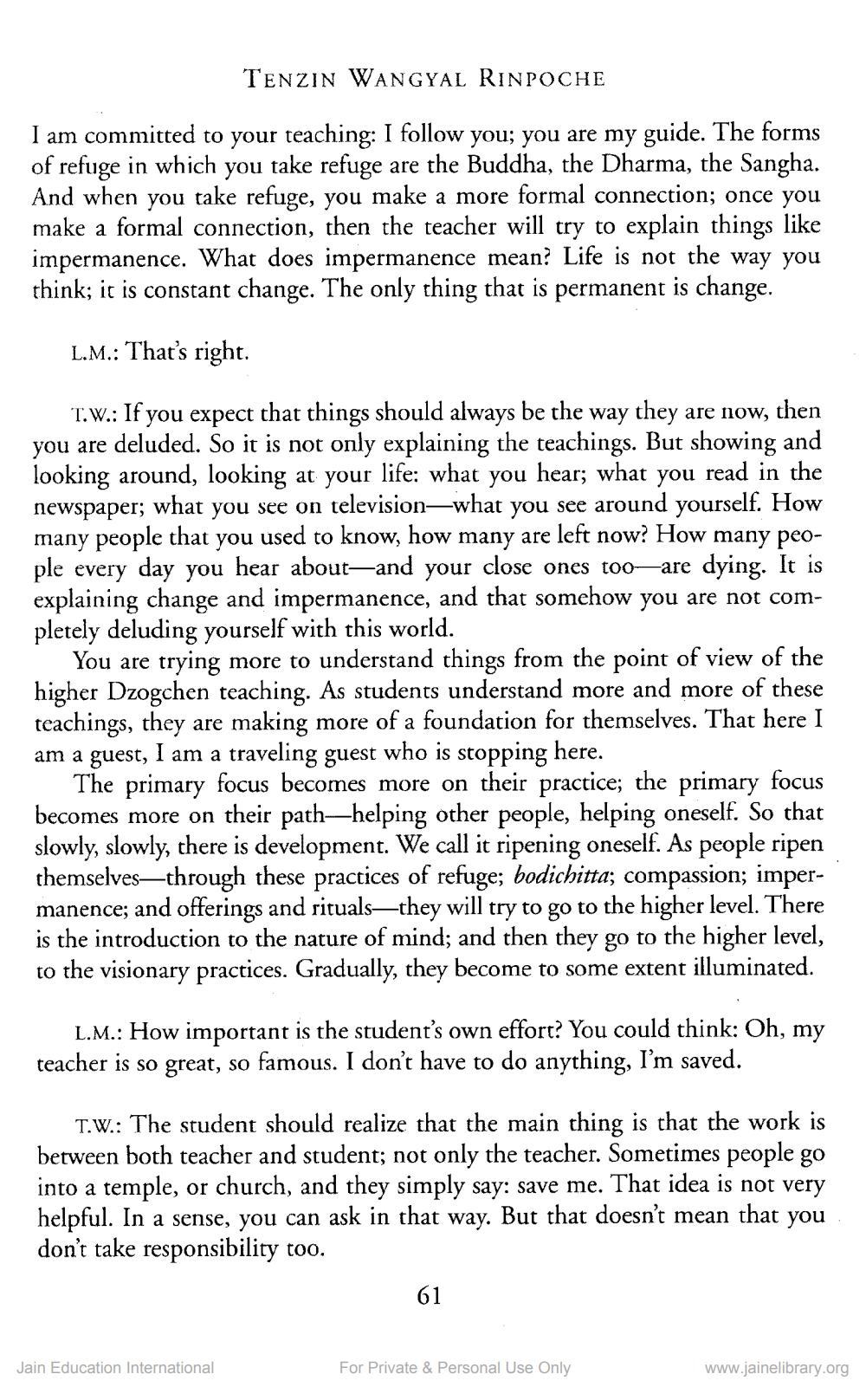________________
TENZIN WANGYAL RINPOCHE
I am committed to your teaching: I follow you; you are my guide. The forms of refuge in which you take refuge are the Buddha, the Dharma, the Sangha. And when you take refuge, you make a more formal connection; once you make a formal connection, then the teacher will try to explain things like impermanence. What does impermanence mean? Life is not the way you think; it is constant change. The only thing that is permanent is change.
L.M.: That's right.
T.W.: If you expect that things should always be the way they are now, then you are deluded. So it is not only explaining the teachings. But showing and looking around, looking at your life: what you hear; what you read in the newspaper; what you see on television—what you see around yourself. How many people that you used to know, how many are left now? How many people every day you hear about—and your close ones too—are dying. It is explaining change and impermanence, and that somehow you are not completely deluding yourself with this world.
You are trying more to understand things from the point of view of the higher Dzogchen teaching. As students understand more and more of these teachings, they are making more of a foundation for themselves. That here I am a guest, I am a traveling guest who is stopping here.
The primary focus becomes more on their practice; the primary focus becomes more on their path—helping other people, helping oneself. So that slowly, slowly, there is development. We call it ripening oneself. As people ripen themselves—through these practices of refuge; bodichitta; compassion; impermanence; and offerings and rituals—they will try to go to the higher level. There is the introduction to the nature of mind; and then they go to the higher level, to the visionary practices. Gradually, they become to some extent illuminated.
L.M.: How important is the student's own effort? You could think: Oh, my teacher is so great, so famous. I don't have to do anything, I'm saved.
T.W.: The student should realize that the main thing is that the work is between both teacher and student; not only the teacher. Sometimes people go into a temple, or church, and they simply say: save me. That idea is not very helpful. In a sense, you can ask in that way. But that doesn't mean that you don't take responsibility too.
61
Jain Education International
For Private & Personal Use Only
www.jainelibrary.org




